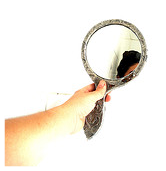(Part 1 of a 3 part series on Being Prickly)
 We come into contact with prickly people all the time. It might be a scowl, a frosty attitude or a touchy disposition. It might be the choice of words as in 'What do you want?!'
We come into contact with prickly people all the time. It might be a scowl, a frosty attitude or a touchy disposition. It might be the choice of words as in 'What do you want?!'Sometimes they serve us coffee. Sometimes they sit across from us at work or in committee meetings. Sometimes they live in our neighborhood or even worse! in our own homes.
And sometimes - more often then we'd like to admit - they are staring back at us in the mirror.
 A prickly person might react like a porcupine with it's back slightly up - becoming annoyed, impatient, intolerant, stingy, negative, argumentative, or angry. Or they might react as though everyone else is a porcupine - flailing from the perceived barbs, getting easily wounded, taking things personally or feeling extremely hurt by others' words, actions or even non-actions.
A prickly person might react like a porcupine with it's back slightly up - becoming annoyed, impatient, intolerant, stingy, negative, argumentative, or angry. Or they might react as though everyone else is a porcupine - flailing from the perceived barbs, getting easily wounded, taking things personally or feeling extremely hurt by others' words, actions or even non-actions.
Sometimes they are preemptive, assuming that you are the enemy. Other times these reactions can be a split second shift due to one word, one difference of opinion, one deviation from the prickly person's script.
To make matters more complex, while some prickly people always have their quills up - you know the supermarket cashier who is never a happy camper - others flip on and off so you never know who you're dealing with. Uptight, abrupt, and unapproachable one day; pleasant, warm and relaxed another. And then you have the crusty crowd, who appear tough until you've proven yourself worthy and you get the subtle wink that you're in the secret club that knows that it's all a fascade.
Of course in defense of prickliness, there are times when the world IS threatening and protecting yourself or feeling hurt by someone is reasonable. In addition, we can all be cranky on any given day. And beyond that, most of us have some areas that are particularly tender and sensitive. The key is how often the person is painful to be around - as in there's a big difference between being a person who is occasionally thorny and being someone who is, occasionally, not.
Are you willing to look in the mirror? Here is a test. How many of these statements describe you?
- You often feel and/or appear stressed out.
- You take things personally and often feel hurt or offended by others.
- You have a hard time being challenged or hearing feedback.
- When you feel slighted by someone it may take you days or even months to speak to (or speak kindly to) them again.
- You describe yourself as 'a bit of a control-freak' or a perfectionist.
- Being right is REALLY important to you.
- You often feel like people around you are inferior, incompetent, dumb or not worth your time.
- You tend to focus on mistakes, problems and differences as opposed to learning opportunities, challenges and commonalities.
- Seeing things from another person's point of view is not one of your strengths.
- It's hit or miss as to whether you are approachable. People don't often come to you for help.
- People chewing loudly annoy you. People being happy annoy you. People who don't follow your rules annoy you. People who have problems annoy you. People who don't take your advice annoy you. People who overuse a writing technique annoy you.
- When you ask someone whom you consider honest and who is not afraid of you, if you are a prickly person they say, 'Is this a trick question?'
- You find it hard to laugh at yourself. People often try to get you to lighten up.
How did you do? See something you could tweak a bit? Need a complete makeover? Or are you thinking this isn't you - just everyone in your life! If you were thinking that last one you may want to consider that your very attitude (and possible denial) may be partly to blame and may be triggering others' reactivity and visa-versa. It's the chicken and the egg and the porcupine thing.
But here's some good news. Being prickly doesn't mean you aren't a good person with many strengths. It means you're missing something. In fact some prickliness is easy to reframe as eccentricity or quirkiness - especially when it doesn't effect us directly. And oddly enough, a curious reaction to prickly traits is that often the aspects of a person that are challenging to be around are the very ones we miss when they are gone.
I hope that makes you feel better - just not so much better that you don't try to make it more pleasant for people to connect with you. Otherwise you may have to wait until your departure to be appreciated!
Owning our own issues (and yes I mean me too!) and being committed to changing others' experience of us is a good way to start.
Good luck. And if you want more than luck read the rest of this series.
~ ~ ~
Annie Zirkel, LPC is a sometimes prickly person and Relationship Consultant based in Ann Arbor, Mi. You can contact her at annie@practicehow.com Creative Commons License Photo credit Drew_Avery